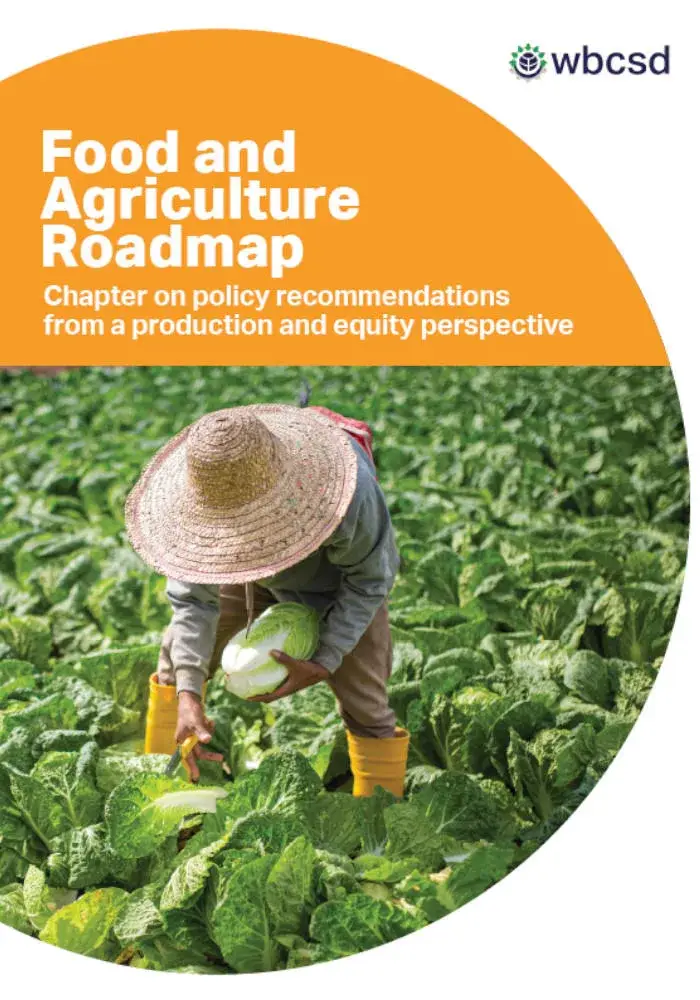Food & Agriculture Roadmap

Published
19 July, 2021Type
PublicationThe Food and Agriculture Roadmap serves as the implementation plan for WBCSD’s CEO Guide to Food System Transformation by setting out the overarching transformational targets, key action areas and business-led solutions required to achieve environmental sustainability, equitable livelihoods, and healthy and sustainable diets for all.
It builds on the body of work developed by WBCSD’s Food Reform for Sustainability and Health (FReSH), Scaling Positive Agriculture (SPA) and Global Agribusiness Action on Equitable Livelihoods (GAA-EL) projects.
The private sector is responsible for almost all the food produced, sold and consumed globally. Therefore, businesses have a central role to play in improving food production and consumption patterns worldwide. The Food and Agriculture Roadmap calls on companies to work actively to address the issues of healthy and environmentally sustainable production and consumption by delivering integrated solutions to transform food systems.
What is it about:
This chapter on policy recommendations consolidates the outputs of the Science-to-Policy Dialogues (please find the summary outcomes here), which brought together academia, business and civil society to co-construct policy recommendations for food systems transformation. This chapter focuses on sustainable agri-food production and equitable livelihoods while a previous chapter provides policy recommendations from a consumer perspective.
Key findings:
Through an iterative research and consultative process with WBCSD members, academia and civil society, we put forward three clear policy asks from a production and equity perspective:
- Create a common set of global targets for food systems;
- Redesign policy development platforms using inclusive multi-stakeholder processes, with objectives anchored in a joint global scientific agenda;
- Shift finance and harness digitalization to better account for and address risks and opportunities.
In addition, this chapter also sets out key enablers that will support the realization of these policies, as identified by businesses. These enablers are:
- Building and maintaining trust and buy-in;
- Investing in livelihoods and communities;
- Prioritizing equity.
Outline
